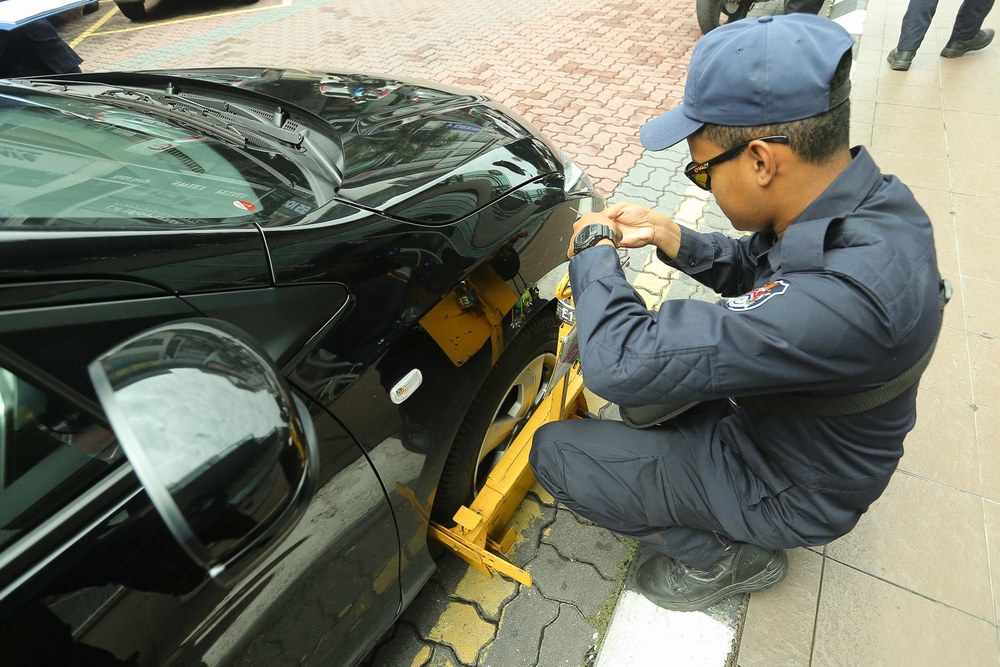KUALA LUMPUR, Oct 29 — Beginning November 1, Kuala Lumpur City Hall (DBKL) will work with private operators on the wheel-clamping action taken on vehicles.
Federal Territories Minister Khalid Abd Samad said this was to avoid any conflicts between the authorities and the public who think such moves were just a way for City Hall to make money.
“The clamping of wheels is not a commercial activity but is for the convenience of city folks.
“Some people see it as a commercial action, even (for us) to attain the Key Performance Indicator (KPI), causing the conflicts.
“So we will have to coordinate with the operators in the standard operating procedure (SOP) so that enforcement is carried out in a responsible and transparent manner,” he told reporters after launching the Kuala Lumpur History Seminar: Kuala Lumpur from the Perspective of Heritage, History and Culture here today.
Also present was Kuala Lumpur Mayor Datuk Nor Hisham Ahmad Dahlan.
Khalid was commenting on reports that Nor Hisham had directed that there would be no more wheel-clamping in Kuala Lumpur.
However, it is understood that the contract had been given to the Yayasan Wilayah Persekutuan (YWP) which later privatised the enforcement action to Vista Summerose.
Khalid added that DBKL had an agreement with the appointed operators but its priority was the convenience of the public.
Meanwhile, DBKL is also in the midst of upgrading its online system of paying compounds.
Nor Hisham said this came after glitches in the system when DBKL offered discounts for its compounds recently.
“Many people wanted to pay but the queue was really long and the system was not ready for old compounds as it did not have the database.
“So we will set up the system and hope that in future, the public will pay online,” he said.
The History Seminar is organised by the Kuala Lumpur Library, discussed various topics on the city in detail.
Khalid said the seminar was a way for the public to find out about the city and contribute towards national history which would be a reference for future generations. — Bernama



















